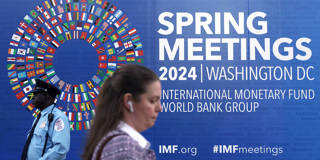
Still Haunted by the Washington Consensus
The old, dominant Western economic orthodoxy had two decades of hegemony after the Cold War, and ultimately proved wanting. Now, global challenges – from climate change and artificial intelligence to the space race and pandemics – require us to address questions that had long been pushed aside.
CAMBRIDGE – In 1989, the British economist John Williamson christened what was to become the defining intellectual export of the era of globalization: the Washington Consensus. Initially a reference to the policies adopted to tackle macroeconomic turmoil in Latin America, the term quickly morphed into a canonical “ten commandments” of development.